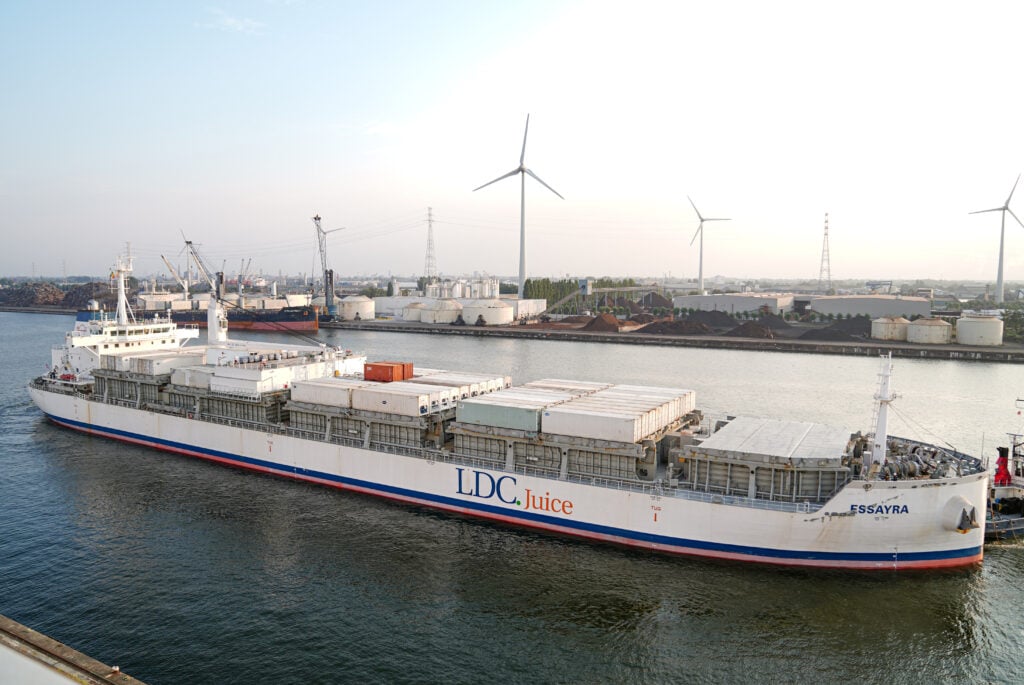Trader neutralizes carbon emissions in orange juice transport to EU
Louis Dreyfus Company B.V. (LDC) announced today a successful completion of a biofuel test run in collaboration with Wisby Tanker AB, Sweden (Wisby Tanker) on one of LDC’s juice ships, the MV Essayra. The company used a blend of B30 biofuel with marine fuel for the first time to sail from LDC’s terminal in Ghent, […]

Louis Dreyfus Company B.V. (LDC) announced today a successful completion of a biofuel test run in collaboration with Wisby Tanker AB, Sweden (Wisby Tanker) on one of LDC’s juice ships, the MV Essayra.
The company used a blend of B30 biofuel with marine fuel for the first time to sail from LDC’s terminal in Ghent, Belgium, to another company’s terminal in Santos, Brazil, and back with a full load of non-concentrate orange juice and frozen concentrate, for a period of 55 days.
“As part of LDC’s journey to help shape a zero-carbon economy, we are committed to contributing to the decarbonization of the maritime sector through a series of actions and initiatives, including exploring alternative fuel solutions,” says Sébastien Landerretche, Global Head of Freight at LDC.
“The result of coordination between LDC’s Carbon, Freight and Juice Solutions Platforms, as well as Wisby Tanker, this successful first trial reflects LDC’s ambition and expertise in the field, and our collaborative approach to handling the transition sector energy.”
A variety of tests was performed throughout the vessel’s voyage to measure the impact of the B30 biofuel blend on the vessel’s fuel system and overall performance.
Biofuel
The results showed that B30 is a cleaner and more practical substitute for VLSFO (Very Low Sulfur Fuel Oil/Ultra-low sulfur fuel oil), reducing greenhouse gas (GHG) emissions by about 24%; that is, equivalent to 723 tons of CO2 (tCO2e).
LDC offset the 76% of the voyage’s remaining GHG emissions through carbon credits obtained from its Carbon Solutions Platform, making this orange juice maritime transport the world’s first carbon neutralized shipping.
To this end, LDC chose to use a total of 2,262 tCO2e of third-party certified carbon credits from the Kariba REDD+ Project, which protects more than 785,000 hectares of forests in Zimbabwe, supports local communities and is certified to environmental standards. internationally recognized carbon
In addition to this biofuel trial, LDC is working on a variety of decarbonisation projects, leveraging technologies such as wind, solar, battery and air lubrication systems, with the constant aim of improving vessel efficiency and reducing emissions. of carbon from your transport.


